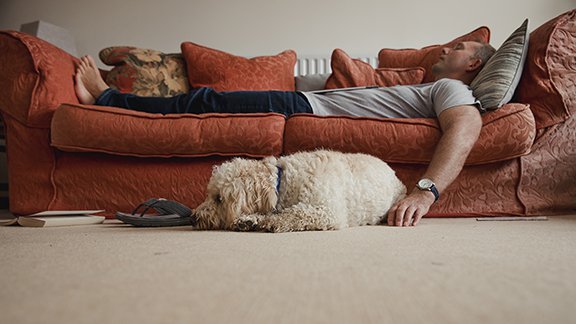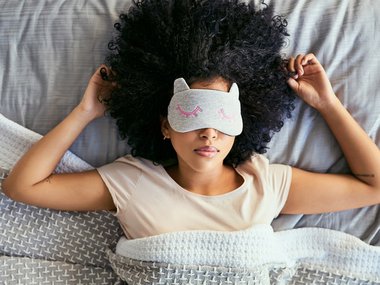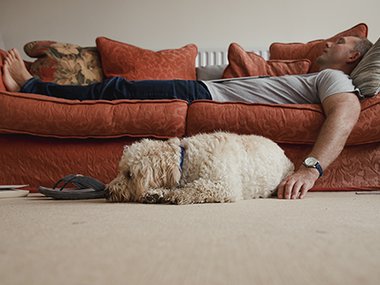Question Your World: When Does the Brain Eat Itself?
How’d you sleep last night? We often talk about how important sleep is because there’s more and more new research to back up that claim! We've seen the lack of sleep can cause lots of damage to the human system, but this new discovery is worthy of making it a big deal. After all, how often can we talk about brains being zombies?! Today's big question is: When does the brain eat itself?
Recently sleep scientists made a huge discovery about how insufficient sleep allows the brain to go zombie on itself. Yeah, it starts to kind of eat itself in the brains! For this study, scientists studied mice brains. Sure, they’re smaller, but they make for a great testing ground for human issues since we have so much of the same neural infrastructure. Here scientists were able to look at glial cells, which act kind of like the brain’s housekeeping system.

Image credit: Getty Images
When we sleep, glial cells pop into action and clean out damaged cells, toxins, and generally tidy up around the place. We've talked about these cleaning crew cells before so dig through our previous piece if you want more info.
What scientists observed this time though was that Astrocytes, star shaped glial cells, became super active in sleep-deprived brains. They were so active that not only were they getting rid of the damaged cells, but also perfectly normal ones too. They observed that nearly 13% of the neurons in the brain were being destroyed during periods of insufficient sleep – that would be about 13 billion neurons in the human brain in a lifetime. That's a lot of brainpower lost from just sleep-deprived cleanings.
Scientists can now use this information to better understand how chronic lack of sleep impacts neurological diseases like Alzheimer’s. Better understanding our sleep patterns can greatly help us as we work towards a healthier life.
For mobile phone users looking to analyze their sleep patterns, there’s an app for that. But, if you’re just tired, remember, there’s a nap for that.


